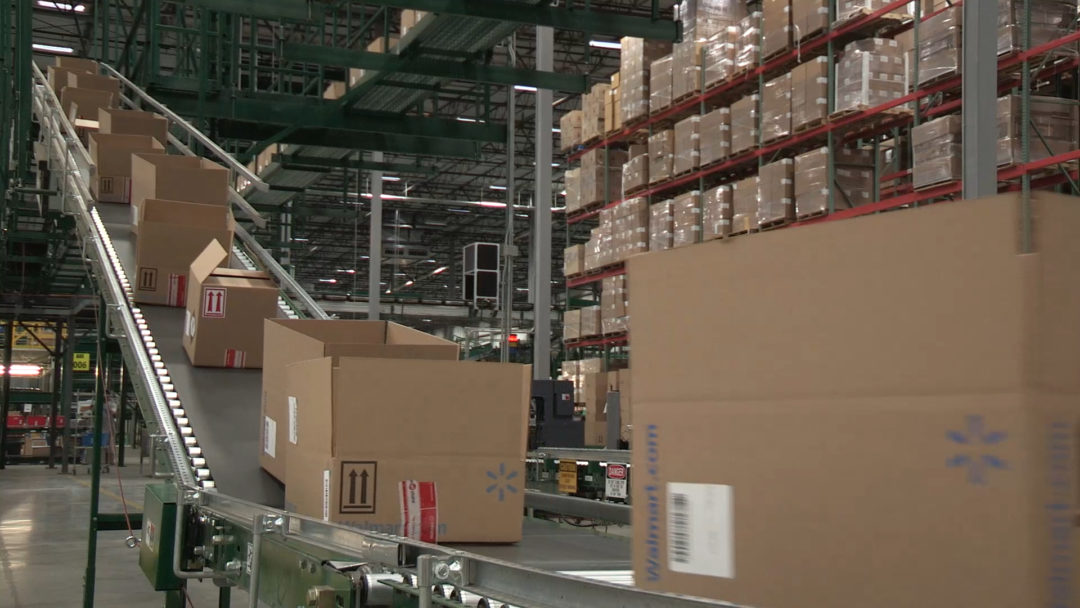Walmart says STEM training needed for 40% of workers in its newest DCs
Two large-footprint sites near Dallas will boost fulfillment volumes through automation technology, retailer says.

Retail giant Walmart Inc. will build two enormous logistics facilities in the Dallas-Fort Worth area, saying that nearly half the positions in those high-tech DCs will require science, technology, engineering, and math (STEM) education to prepare workers for their technical positions.
Both the facilities will be located in Lancaster, Texas, including a 1.5-million square-foot automated fulfillment center set to open in 2023 and a 730,000 square-foot automated grocery distribution center planned for opening in 2024. Together, they will create 1,000 full-time jobs across the region, with 40% of the positions requiring STEM skills, the Bentonville, Arkansas-based company said.
According to Walmart, the two facilities will move more than two times the volume of a traditional fulfillment and grocery distribution center, without sacrificing any accuracy, quality, or speed. That achievement will come through the combination of Walmart employees and automation technology, the company said.
Walmart did not provide any details on the type of automation or the cost of the planned investment.
However, the company said the facilities are part of its larger investment announced in July to add automation in more than half of its regional DCs and to the compact, modular warehouses attached to retail stores that it calls “market fulfillment centers.” At that time, Walmart launched plans to install automated material handling systems from robot vendor Symbotic in 25 of its 42 regional DCs.
While the two newest facilities will be “among Walmart’s largest” automated fulfillment and distribution centers, they will fit into a sprawling supply chain network in the region. In the state of Texas alone, Walmart operates 19 distribution centers, runs 593 retail stores, and employs more than 171,000 people.
Related Articles
Copyright ©2024. All Rights ReservedDesign, CMS, Hosting & Web Development :: ePublishing